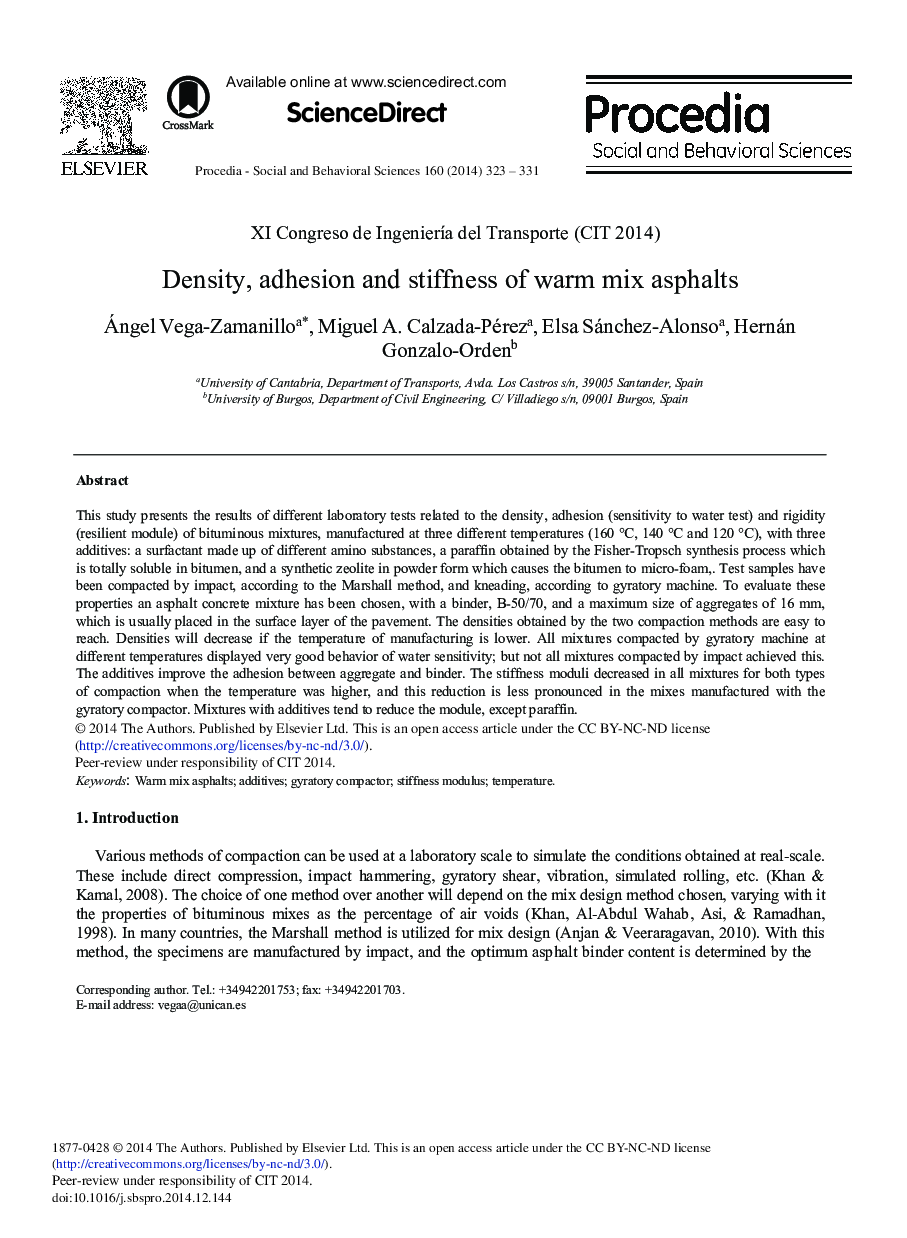| Article ID | Journal | Published Year | Pages | File Type |
|---|---|---|---|---|
| 1112192 | Procedia - Social and Behavioral Sciences | 2014 | 9 Pages |
This study presents the results of different laboratory tests related to the density, adhesion (sensitivity to water test) and rigidity (resilient module) of bituminous mixtures, manufactured at three different temperatures (160 °C, 140 °C and 120 °C), with three additives: a surfactant made up of different amino substances, a paraffin obtained by the Fisher-Tropsch synthesis process which is totally soluble in bitumen, and a synthetic zeolite in powder form which causes the bitumen to micro-foam,. Test samples have been compacted by impact, according to the Marshall method, and kneading, according to gyratory machine. To evaluate these properties an asphalt concrete mixture has been chosen, with a binder, B-50/70, and a maximum size of aggregates of 16 mm, which is usually placed in the surface layer of the pavement. The densities obtained by the two compaction methods are easy to reach. Densities will decrease if the temperature of manufacturing is lower. All mixtures compacted by gyratory machine at different temperatures displayed very good behavior of water sensitivity; but not all mixtures compacted by impact achieved this. The additives improve the adhesion between aggregate and binder. The stiffness moduli decreased in all mixtures for both types of compaction when the temperature was higher, and this reduction is less pronounced in the mixes manufactured with the gyratory compactor. Mixtures with additives tend to reduce the module, except paraffin.
